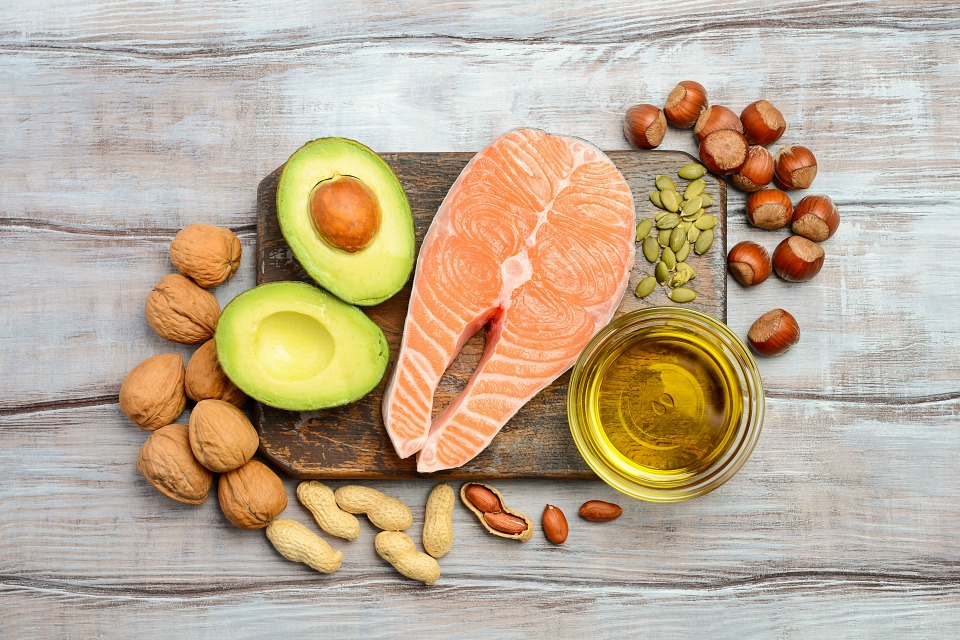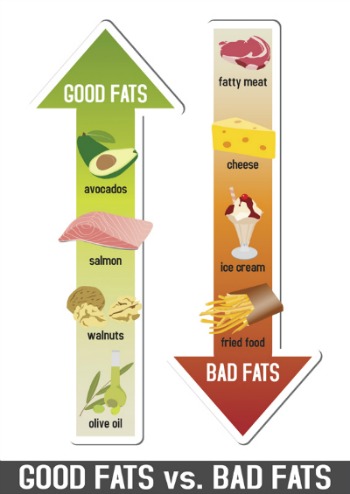- HIITCore Fitness | Braintree & Burlington, MA
- (781) 780-5577
- info@hiitcorefitness.com

The Truth About Fats
By Brianna Laurila, RD, LDN
Fats: are they good, bad, unhealthy, or healthy? To put it simply, the answer is all of the above! Believe it or not, fat is a necessary nutrient for your overall health. Fat functions as a major source of energy, improves brain function, absorbs certain vitamins, and is needed to build and protect cells. Before you go start a high fat diet, keep reading! There is a fine line between ‘good’ fats and ‘bad’ fats.
The fats to choose more often in your daily diet should come mainly from vegetables, nuts, seeds, and fish. These are considered the ‘good’ fats. These types of fats actually offer health-protective benefits when consumed in moderation. The two categories of the good, healthy fats are known as Monounsaturated and Polyunsaturated.
Monounsaturated fats improve cholesterol levels and decrease your overall risk of heart disease. This category of fats includes nuts (including nut butters), oils, and avocados. Nuts not only provide heart-healthy fats but are also a good source of protein, fiber, vitamins, and minerals. Heart-healthy oils include olive, canola, peanut, and avocado oils. Use these oils in a moderate amount in place of butter, lard, or salad dressing to benefit your cardiovascular health.
 Polyunsaturated fats also improve heart health by raising HDL levels and lowering triglycerides. These include foods such as fish, walnuts, oils, and flaxseed. Good sources of fish high in polyunsaturated fats include salmon, mackerel, and sardines. Some oils high in polyunsaturated fats include corn oil, sunflower oil, and safflower oil.
Polyunsaturated fats also improve heart health by raising HDL levels and lowering triglycerides. These include foods such as fish, walnuts, oils, and flaxseed. Good sources of fish high in polyunsaturated fats include salmon, mackerel, and sardines. Some oils high in polyunsaturated fats include corn oil, sunflower oil, and safflower oil.
On the flip side, the ‘bad’ fats are difficult to avoid but should be consumed less frequently than the ‘good’ fats. The ‘bad’ fats include trans fats and saturated fats. Trans fats are found in margarines, vegetable oils, baked goods, and fast foods. Trans fat increases LDL cholesterol (the bad cholesterol), which is directly correlated to heart disease, diabetes, and the prevalence of stroke. Sources of saturated fats include meats (fatty beef, lamb, pork, poultry with skin), whole dairy products (whole milk, cream, butter), cheese, and tropical oils (such as coconut oil). Saturated fats have proven to increase total cholesterol and significantly increase the risk of heart disease. It is recommended to limit your saturated fat intake to less than 10% of your total daily caloric intake.
Overall, fat is essential for your body. And let’s face it, fat is everywhere! To improve your diet and heart health, start replacing the ‘bad’ fats with the ‘good’ fats. When preparing your meals, choose lean cuts of meat and 98% lean ground meats. Remove visible fat and skin before cooking. Choose fat-free or low fat dairy products daily. These small changes are certain to make great differences in your health!
(Remember to take into consideration your own food allergies/intolerances, gastrointestinal disorders, medical history and diagnoses, and body composition goals. It is always recommended to collaborate with a physician, trainer, and dietitian for optimal performance and health management.)



